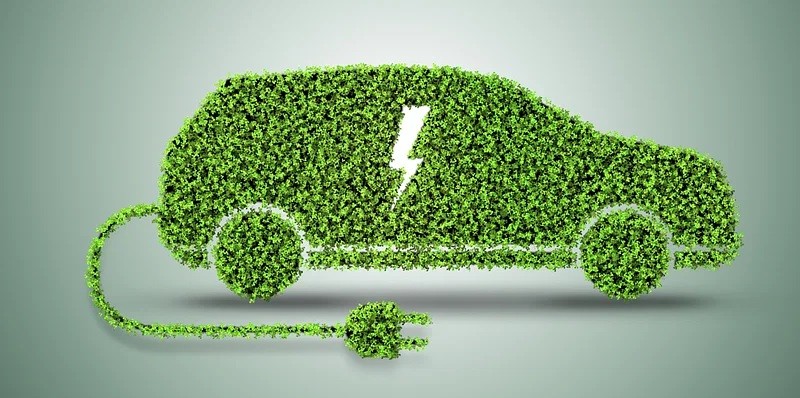Electric cars are becoming more and more popular these days. You might have seen some on the roads already. They are cars that run on electricity instead of gasoline or diesel fuel. Electric cars are better for the environment because they don’t produce harmful emissions that cause air pollution and contribute to climate change.
How Do Electric Cars Work?
Instead of a gasoline tank, electric cars have a large battery pack that stores electrical energy. This battery pack powers an electric motor that turns the wheels and makes the car move. The battery pack can be recharged by plugging the car into an electrical outlet or charging station.
There are different types of electric cars:
1. Battery Electric Vehicles (BEVs): These cars run entirely on electricity stored in their battery packs. Examples include the Tesla Model S, Nissan Leaf, and Chevrolet Bolt EV.
2. Plug-in Hybrid Electric Vehicles (PHEVs): These cars have both an electric motor and a gasoline engine. They can run on electricity for a certain distance, and then the gasoline engine kicks in when the battery runs out. Examples include the Toyota Prius Prime and Chevrolet Volt.
3. Hybrid Electric Vehicles (HEVs): These cars have both an electric motor and a gasoline engine, but they cannot be plugged in to charge the battery. The battery is charged through regenerative braking and the gasoline engine. Examples include the Toyota Prius and Honda Insight.
Advantages of Electric Cars
1. Environmental Benefits: Electric cars have zero direct emissions, which means they don’t produce harmful gases like carbon dioxide, nitrogen oxides, and particulate matter. This helps reduce air pollution and greenhouse gas emissions that contribute to climate change.
2. Lower Fuel Costs: Electricity is generally cheaper than gasoline or diesel fuel, so the cost of “fueling” an electric car is much lower. This can save you a significant amount of money over the lifetime of the vehicle.
3. Low Maintenance: Electric cars have fewer moving parts than conventional gasoline-powered cars, which means there’s less wear and tear, and fewer components to maintain or replace. This can lead to lower maintenance costs overall.
4. Quieter Operation: Electric cars are much quieter than gasoline-powered cars because they don’t have a noisy internal combustion engine. This creates a more peaceful and relaxing driving experience.
5. Instant Torque: Electric motors can provide instant torque (rotational force) from a standstill, which means electric cars can accelerate very quickly and feel more responsive.
Challenges of Electric Cars READ FULL STORY HERE>>>CLICK HERE TO CONTINUE READING>>>
1. Limited Range: Most electric cars have a limited driving range before needing to recharge, typically between 150 to 300 miles on a single charge. This can cause “range anxiety” for some drivers, especially on longer trips.
2. Long Charging Times: Fully recharging an electric car’s battery can take several hours, depending on the charging method and battery size. This can be inconvenient, especially for long-distance travel.
3. Higher Upfront Costs: Electric cars tend to have higher initial purchase prices than comparable gasoline-powered cars, although the lower fuel and maintenance costs can offset this over time.
4. Limited Public Charging Infrastructure: While the number of public charging stations is growing, the infrastructure is still relatively limited compared to the widespread availability of gas stations.
5. Battery Lifespan and Replacement Costs: Electric car batteries can degrade over time and may need to be replaced after several years, which can be expensive.
The Future of Electric Cars
Despite the challenges, the future of electric cars looks promising. As battery technology continues to improve, providing longer ranges and shorter charging times, and as more public charging infrastructure is built, electric cars will become increasingly practical and appealing for a wider range of consumers.
Many countries and automakers have set ambitious goals to phase out gasoline-powered vehicles and transition to electric cars in the coming decades. For example, the United Kingdom plans to ban the sale of new gasoline and diesel cars by 2030, while General Motors aims to phase out gasoline and diesel vehicles by 2035.

In addition to environmental benefits, electric cars offer several advantages that make them an attractive option for consumers. Their smooth and quiet operation, instant acceleration, and lower fuel and maintenance costs can make for a pleasant driving experience, especially for city and suburban commuting.
As electric car technology continues to advance and become more affordable, it’s likely that we’ll see a significant shift towards electric vehicles in the coming years. While the transition won’t happen overnight, it’s clear that electric cars are an important part of the future of transportation.
Governments, automakers, and consumers all have a role to play in supporting the adoption of electric cars. Governments can provide incentives and invest in charging infrastructure, automakers can continue to innovate and produce a wider range of affordable electric models, and consumers can consider electric cars as a viable option when purchasing a new vehicle.
Making the switch to an electric car may not be practical for everyone right now, but as the technology continues to evolve and become more accessible, it’s an option worth considering for those looking to reduce their environmental impact and enjoy the benefits of modern, efficient, and sustainable transportation.


 SPORTS10 months ago
SPORTS10 months ago
 SPORTS11 months ago
SPORTS11 months ago
 SPORTS11 months ago
SPORTS11 months ago
 METRO7 months ago
METRO7 months ago
 SPORTS10 months ago
SPORTS10 months ago
 METRO11 months ago
METRO11 months ago
 SPORTS11 months ago
SPORTS11 months ago
 IN-THE-NEWS7 months ago
IN-THE-NEWS7 months ago



